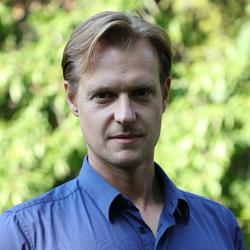Panel on Environmental Human Rights Defenders (EHRD)
Organized by Research Centre Lund
Environmental human rights defenders (EHRD) speak out for sustainable livelihoods and denounce ongoing processes that damage natural resources and violate human rights. They employ proactive strategies for biodiversity conservation and ecological restoration, climate change mitigation and adaptation, as well as for the protection of the cultural heritage of their communities. EHRD thereby in parallel advance major Sustainable Development Goals on no poverty (no. 1), gender equality (no. 5), climate action (no. 13), biodiversity protection (no. 15) and peace (no. 16). Due to their multiple engagement in an era of polycrisis, however, these defenders also often face intimidation and violence. Colombia is a case in point for SDG change agents living at risk. The implementation of the 2016 peace agreement between the government and the FARC-EP guerrila group led to an increase in levels of violence against Environment and Human Rights Defenders (EHRD) – with Colombia becoming the country with the most EHRD killings annually on a global scale. This said, EHRD are equally the subject of discrimination and different forms of violence in many other regions across the globe, including in European contexts, from Romanian forests to Sapmi in Sweden, Norway, Finland and Russia. Whilst there is growing public and scholarly acknowledgement of the vulnerability of EHRD, we lack comprehensive empirical analyses of the roles EHRD play as crucial and vulnerable agents of change for just socio-ecological transitions across the planet.
The panel therefore seeks to emphasize and bring to awareness the role or EHRD as an important research agenda for the ESG community in times of polycrisis. To this end, we will present insights and discuss four core aspects, with a view to the case of Colombia and below:
- the main motivations, goals and the underlying discourses that drive EHRD and their understandings of the crises they seek to address;
- EHRD practices and strategies to pursue these goals;
- the impacts of these practices in terms of successes and obstacles, including trade-offs between different goals as well as the vulnerability and risks faced by EHRD and the social groups they claim to represent; and
- lessons learned and recommendations for policies and practices that support EHRD and their work on the protection of cultural heritage and biodiversity.
Claudia Ituarte-Lima (Raoul Wallenberg Institute of Human Rights and Humanitarian Law, Lund University, Sweden & Global Network on Human Rights and Environment): Biodiversity Law from Below: Why Defenders’ Agency Matters for Peace with Nature
Maria Andrea Nardi & Catalina Quiroga (both Lund University): Defending Territories, Nurturing Biodiversity in Cartagena: Towards a Situated Cartography of Environmental Defenders
Torsten Krause (Lund University, Sweden), Fariborz Zelli (presenter; Lund University, Sweden), Britta Sjöstedt (Lund University), Juan Antonio Samper (Lund University, Sweden), Ana Maria Vargas Falla (Swedish International Centre for Local Democracy): Colombia’s Long Road to Peace: Implications for Human Rights Defenders
Andrea Mariana Dominguez Noriega (Pontificia Universidad Católica del Perú): The Role of Legal Clinics in Latin America and the Caribbean in Supporting Environmental Human Rights Defenders










